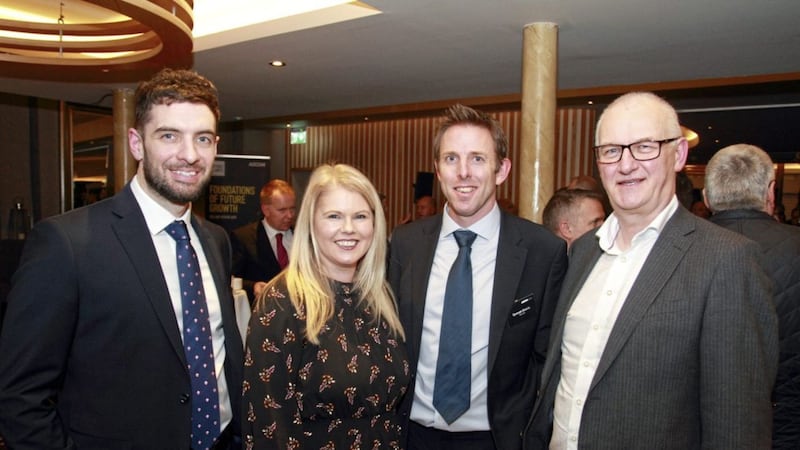A REPORT into the state of the Northern Ireland construction sector has welcomed the restoration of Stormont and pledges of long-awaited investment in infrastructure.
AECOM, one of the world’s biggest infrastructure firms, published its 2020 outlook in Belfast on Friday, which has reviewed attitudes within the north’s construction industry over the past year.
It found that 50 per cent of firms highlighted a lack of government funding as a prime issue facing companies looking to deliver largescale projects,
AECOM said the restoration of the Executive can now deliver market stability and an increase in public sector spending, which it said, will in turn help fuel the delivery of critical infrastructure projects.
The group said additional funding for capital expenditure from Westminster will likewise provide a much-needed boost to the sector.
The latest review has analysed industry sentiment and assesses the future direction of infrastructure planning here. AECOM has focused on five key areas, including climate change and foreign direct investment.
The report found that 30 per cent of firms believe the impact Brexit will have on cross border trade is the biggest barrier to attracting foreign direct investment.
One-in-five (22 per cent) flagged up the political uncertainty around Brexit as a barrier.
Climate change is also a major issue for the industry. Some 73% stated they believe climate change mitigation is now critical for future business planning.
Over 93% said that the idea of the ‘circular economy’ was now important to the way their organisation uses, reuses and recycles natural resources.
Trevor Leaker, Northern Ireland director, AECOM, said, “Our research shows that Northern Ireland companies would like best practice guidance on how to embed recycle and reuse into their businesses. It also shows that the sector is eager to embrace change and adopt a circular economy.”
He said it was no surprise that the implications of Brexit businesses stood out as a key concern for industry, particularly during the absence of the Northern Ireland Executive.
“However, I am extremely pleased to see the Assembly return and trust this will lead to the much-needed investment in infrastructure and support that has been lacking in recent years.
“The restoration of the Executive means investment and planning for long-term projects can now take place, which will allow industry to look to the future.”
Mr Leaker continued: “Although Brexit’s impact on cross-border trade is feared to have a negative impact on FDI for Northern Ireland, political uncertainty will begin to ease as progress continues in Stormont. Belfast has always had enormous potential and looking ahead, it is set to be an attractive city for future investment with major developments in the regeneration of the Belfast Harbour, university campus and accommodation builds, residential projects and new transport schemes all to happen over the next few years.“








